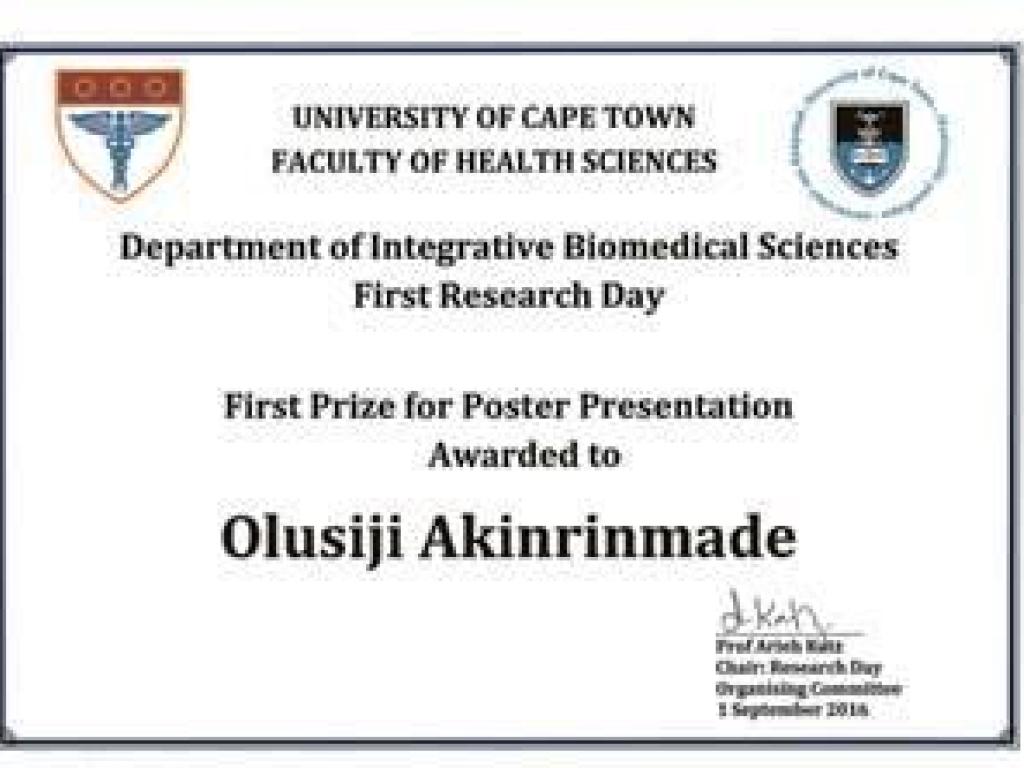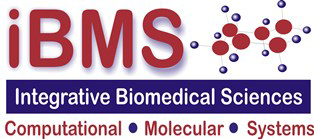Research Day 1st Prize-Poster Presentation

SELECTIVE ELIMINATION OF CD64-POSITIVE DYSREGULATED M1-MACROPHAGES ALLOW TREATMENT OF CHRONIC INFLAMMATORY DISEASES
Olusiji Akinrinmade, Eden Padayachee, Shivan Chetty, and Stefan Barth
Division of Chemical and Systems Biology, Department of Integrative Biomedical Sciences, FHS, University of Cape Town.
Up to today, no disease-specific cell surface antigens have been described that would allow the development of cell specific targeted therapies for most chronic inflammatory diseases. In consequence, current treatment aims to interfere with pro-inflammatory cytokines (e.g. TNF-α) rather than intervening at the primary disease initiation cycle. Recently we show that selective killing of CD64-positive M1 macrophages is resolving cutaneous chronic inflammation in mice and patient biopsies.
In short summary, bacterial Pseudomonas exotoxin A (ETA) or mutants of human angiogenin were genetically fused to H22, a humanized single-chain antibody fragment (scFv) specific for Fc gamma receptor I (CD64). Corresponding H22(scFv)-ETA’ and H22(scFv)-Ang constructs selectively killed hCD64tg murine M1 macrophages as well as human pro-inflammatory macrophages (M1Φ). The selectivity for M1 was found linked to the reduced endosomal protease activity in M1Φ as demonstrated by inhibition of endosomal proteases. A transgenic mouse model of chronic cutaneous inflammation was subsequently used to confirm selective elimination of M1Φ in vivo after local intradermal injection: hCD64+ CD14 M1Φ were significantly reduced, whereas CD206+ CD301+ M2Φ remained unaffected. Also, a clear M1 specific effect was found ex vivo, after treatment of skin biopsies from atopic dermatitis and type II diabetes patients with chronically-inflamed skin.
These data are highlighting that targeting M1Φ through CD64 can be instrumental for the development of novel intervention strategies. We will use the increasing know how to generate tailor made immunodiagnostic and -therapeutic constructs for the treatment of different macrophage-driven diseases.
